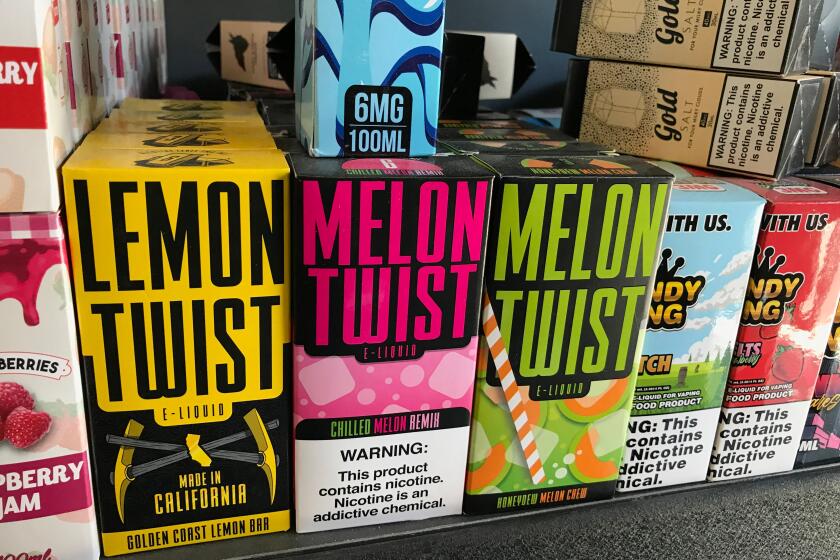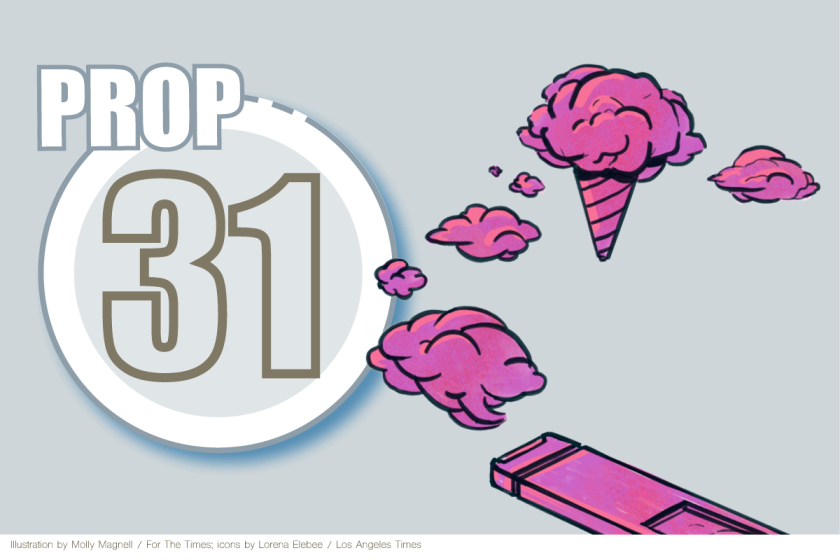New Camel, Newport, Kool cigarettes may violate California’s flavored tobacco ban, AG says

California Atty. Gen. Rob Bonta has issued warnings to two tobacco companies, stating that they may be in violation of the state’s ban on flavored products, a measure upheld by nearly two-thirds of voters last year.
R.J. Reynolds Tobacco Co. and ITG Brands received letters dated April 25 from the Tobacco Unit of the California Department of Justice notifying the companies that packaging and promotional materials for nine reformulated versions of Camel, Newport and Kool cigarettes violated the state law and were presumed to be flavored.
“As part of Atty. Gen. Bonta’s fight to protect the health and safety of California’s youth, and to carry out the will of the people, our office continues to investigate tobacco products that may run afoul of that law,” a spokesperson for Bonta said in an email statement.
The companies have 60 days to respond to the letters, and they indicated they would, according to the spokesperson.
The 2022 law banned the sale of certain flavored tobacco products in stores and vending machines, aiming to deter use among children by eliminating kid-friendly flavors such as bubblegum, cotton candy and cherry.
L.A. will ban many businesses from selling tobacco products that come in sweet, spicy and minty flavors under restrictions backed by the City Council.
Lawmakers approved the statewide ban despite lobbying by the tobacco industry. The campaign against the flavor ban raised millions of dollars, including funds from R.J. Reynolds and Philip Morris USA.
According to the law, a tobacco product could be presumed flavored if it appears that the manufacturer has made such claims through the labeling or packaging of its items.
The letter sent to R.J. Reynolds stated that the company used brand names, text and colors “traditionally” associated with menthol-flavored tobacco products. The reviewed products also included a non-tobacco “capsule” that the labeling indicated would produce a different taste.
Promotional material for the products suggested that these cigarettes would taste or smell differently from a solely tobacco-flavored product, the letter stated. The products were targeted at users of menthol-flavored tobacco products and promoted as an alternative, the letter said.
Here’s who has raised the most money for Proposition 31 and where it is coming from ahead of the 2022 California’s election.
An R.J. Reynolds spokesperson said in an email statement that the letters were “issued in error” and that the products listed by the state attorney general did not have any “distinguishable taste or aroma other than tobacco.”
“We market these products to clearly indicate that they are nonmenthol,” according to the statement. “The letters merely presume that the products have a characterizing flavor based solely upon the review of packaging and promotional materials, not the products themselves.”
“We stand by our products and will respond to the letters appropriately to ensure these lawful products remain available for sale.”
ITG Brands did not respond for comment.
In 2022, 16.5% of high school and 4.5% of middle school students — or 3.08 million — reported using a tobacco product in the last 30 days, according to the U.S. Food and Drug Administration. Most of the students used flavored e-cigarettes, with fruit flavors being the most popular.
Massachusetts became the first state in 2019 to ban the sale of flavored tobacco products. New Jersey, New York and Rhode Island have banned flavored e-cigarettes.
More to Read
Sign up for Essential California
The most important California stories and recommendations in your inbox every morning.
You may occasionally receive promotional content from the Los Angeles Times.












